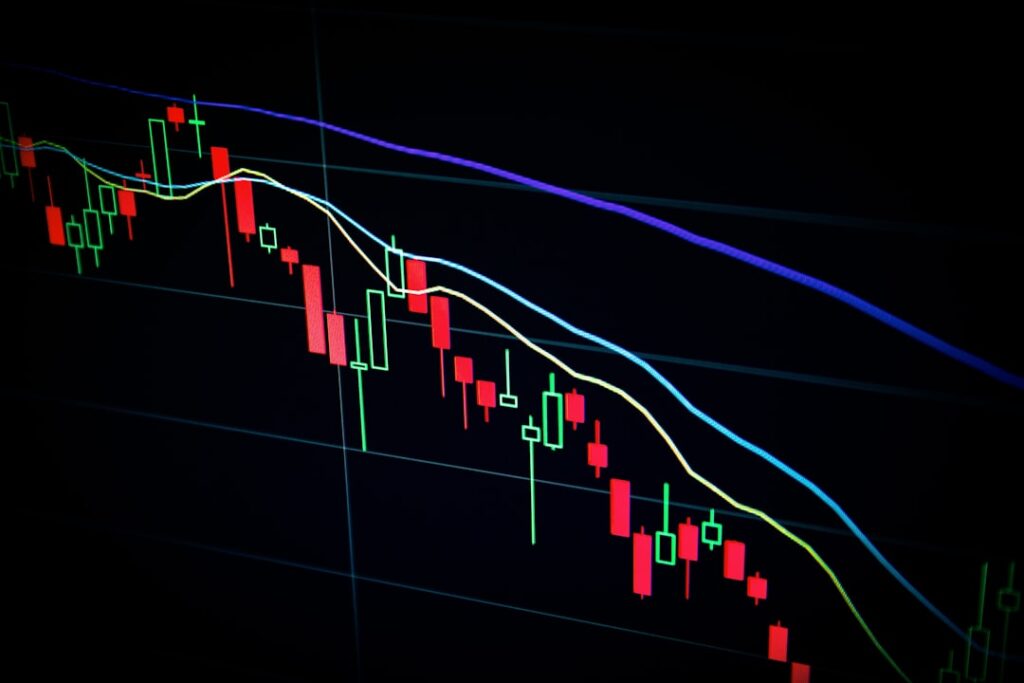Trading simulators are software applications that enable individuals to practice trading in a simulated environment replicating the real stock market. These programs provide users with a virtual account balance and real-time market data, allowing them to execute trades without risking actual capital. Both novice and experienced traders utilize trading simulators as a risk-free method to test strategies, familiarize themselves with trading platforms, and build confidence in their trading skills.
Many brokerage firms and financial websites offer these simulators as a means to attract and educate potential clients. These simulators are designed to closely mimic the real stock market, offering users a realistic trading experience. They typically allow trading in various securities, including stocks, options, futures, and foreign exchange.
Users can access a range of technical indicators and charting tools to analyze market trends. Many simulators also incorporate educational resources such as tutorials, articles, and webinars to help users learn about trading strategies, market analysis, and risk management techniques. Trading simulators serve as valuable tools for individuals seeking practical trading experience without risking their personal finances.
Make $800 a day in less than 30 minutes using the “Secret Protocol”
Key Takeaways
- Trading simulators are virtual platforms that allow users to practice trading without risking real money.
- Benefits of using trading simulators include gaining experience, testing strategies, and learning how to manage risk.
- Drawbacks of using trading simulators include the lack of emotional involvement and the potential for unrealistic expectations.
- To make the most of trading simulators, users should treat it as seriously as real trading, set specific goals, and analyze their performance.
- Real life applications of trading simulators include training new traders, testing new trading strategies, and simulating market conditions.
Benefits of Using Trading Simulators
Improving Trading Skills
By using a trading simulator, individuals can gain valuable insights into their trading style and identify areas for improvement without incurring any financial losses. This enables them to refine their strategies, develop discipline, and build confidence in their trading abilities.
Familiarizing with Trading Platforms
Another benefit of using trading simulators is the opportunity to familiarize oneself with trading platforms and tools. Many trading simulators are designed to replicate the interface and functionality of real trading platforms, allowing users to practice placing orders, managing positions, and using technical analysis tools.
Understanding Market Dynamics
Furthermore, trading simulators can be used to gain a better understanding of market dynamics and how different factors can impact asset prices. By observing how securities react to news events, economic reports, and market trends within a simulated environment, individuals can develop a deeper understanding of market behavior and improve their ability to make informed trading decisions.
Drawbacks of Using Trading Simulators

While there are many benefits to using trading simulators, there are also some drawbacks that individuals should be aware of. One potential drawback is that trading in a simulated environment does not fully replicate the psychological and emotional aspects of real trading. When real money is at stake, individuals may experience fear, greed, and other emotions that can influence their decision-making process.
Therefore, while trading simulators can help individuals develop technical skills and knowledge, they may not fully prepare individuals for the psychological challenges of real trading. Additionally, some critics argue that trading simulators can create a false sense of confidence in individuals who perform well in a simulated environment. Just because a trading strategy is successful in a simulated environment does not guarantee that it will be profitable in the real stock market.
Therefore, individuals should be cautious about assuming that their performance in a simulated environment will directly translate to success in real trading. Another drawback of using trading simulators is that they may not accurately reflect the true liquidity and price movements of the real stock market. In a simulated environment, it is possible for orders to be executed at prices that may not be achievable in the real market, leading to unrealistic expectations about the profitability of certain trading strategies.
Make $800 a day in less than 30 minutes using the “Secret Protocol”
How to Make the Most of Trading Simulators
To make the most of using trading simulators, individuals should approach their simulated trading experience with a clear plan and specific goals in mind. It is important to treat the simulated environment as seriously as one would treat real trading, as this will help individuals develop good habits and discipline that can be applied to real trading. One way to maximize the benefits of using trading simulators is to focus on specific aspects of trading that one wants to improve.
For example, individuals may use the simulator to practice executing trades quickly and efficiently, or to test different risk management techniques. By setting specific goals for each simulated trading session, individuals can track their progress and identify areas for improvement. Furthermore, individuals should use the educational resources provided by trading simulators to expand their knowledge of trading strategies, technical analysis, and market dynamics.
By taking advantage of tutorials, articles, and webinars, individuals can gain valuable insights that can enhance their simulated trading experience. It is also important for individuals to approach simulated trading with a realistic mindset and avoid becoming overconfident based on their performance in the simulated environment. While successful trades in a simulator can be encouraging, individuals should remember that real trading involves additional challenges such as emotions and market liquidity that may not be fully captured in a simulated environment.
Real Life Applications of Trading Simulators
Trading simulators have real-life applications for a wide range of individuals, from novice traders looking to learn the basics of investing to experienced traders seeking to test new strategies. For novice traders, using a trading simulator can provide a risk-free way to gain practical experience in buying and selling securities without risking real money. This can help build confidence and knowledge before transitioning to real trading.
Experienced traders can also benefit from using trading simulators as a way to test new strategies or refine existing ones. By using a simulator to backtest different approaches to trading, individuals can gain insights into how their strategies perform under various market conditions and identify areas for improvement. This can help experienced traders make more informed decisions when managing their real investment portfolios.
Furthermore, trading simulators are valuable tools for educators and students who want to learn about investing and finance. Many educational institutions use trading simulators as part of their finance or investment courses to provide students with hands-on experience in trading securities. This practical experience can help students apply theoretical concepts learned in the classroom to real-world scenarios.
Expert Opinions on Using Trading Simulators

Practical Experience in a Risk-Free Environment
By using a trading simulator, individuals can gain practical experience in a risk-free environment, where they can learn how to execute trades, manage risk, and analyze market trends without the fear of financial loss. This hands-on experience allows individuals to develop their skills and build confidence in their abilities.
Testing and Refining Trading Strategies
Trading simulators are also valuable for testing new strategies and refining existing ones. By backtesting different approaches to trading in a simulated environment, individuals can gain valuable insights into how their strategies perform under various market conditions. This helps traders identify weaknesses in their strategies and make adjustments before implementing them in real trading.
Make $800 a day in less than 30 minutes using the “Secret Protocol”
Limitations of Trading Simulators
While trading simulators are valuable tools for learning and skill development, they may not fully prepare individuals for the psychological challenges of real trading. The emotional aspect of real trading, such as fear, greed, and discipline, cannot be fully replicated in a simulated environment. Therefore, it is important for traders to be aware of the psychological aspects of real trading and to develop strategies to manage them effectively.
Is Using Trading Simulators Worth it?
In conclusion, using trading simulators can be a valuable way for individuals to gain practical experience in trading without risking real money. The benefits of using a simulator include the ability to practice trading strategies, familiarize oneself with trading platforms and tools, and gain a better understanding of market dynamics. However, there are also drawbacks to using trading simulators, such as the inability to fully replicate the psychological aspects of real trading and the potential for creating false confidence.
To make the most of using trading simulators, individuals should approach their simulated trading experience with specific goals in mind and use the educational resources provided by the simulator to expand their knowledge of trading strategies and market dynamics. While using a simulator can provide valuable learning opportunities, it is important for individuals to remember that real trading involves additional challenges that may not be fully captured in a simulated environment. Overall, using a trading simulator can be worth it for individuals looking to gain practical experience in trading and improve their skills before transitioning to real trading.
By approaching simulated trading with a realistic mindset and specific goals in mind, individuals can maximize the benefits of using a simulator and enhance their ability to make informed decisions when managing their investment portfolios.
If you’re interested in learning more about the potential risks and rewards of trading, you may want to check out the article “Is Trading Gambling?“. This article explores the similarities and differences between trading and gambling, shedding light on the potential pitfalls and benefits of engaging in the stock market. It’s a thought-provoking read that can provide valuable insights for anyone considering using a trading simulator.

